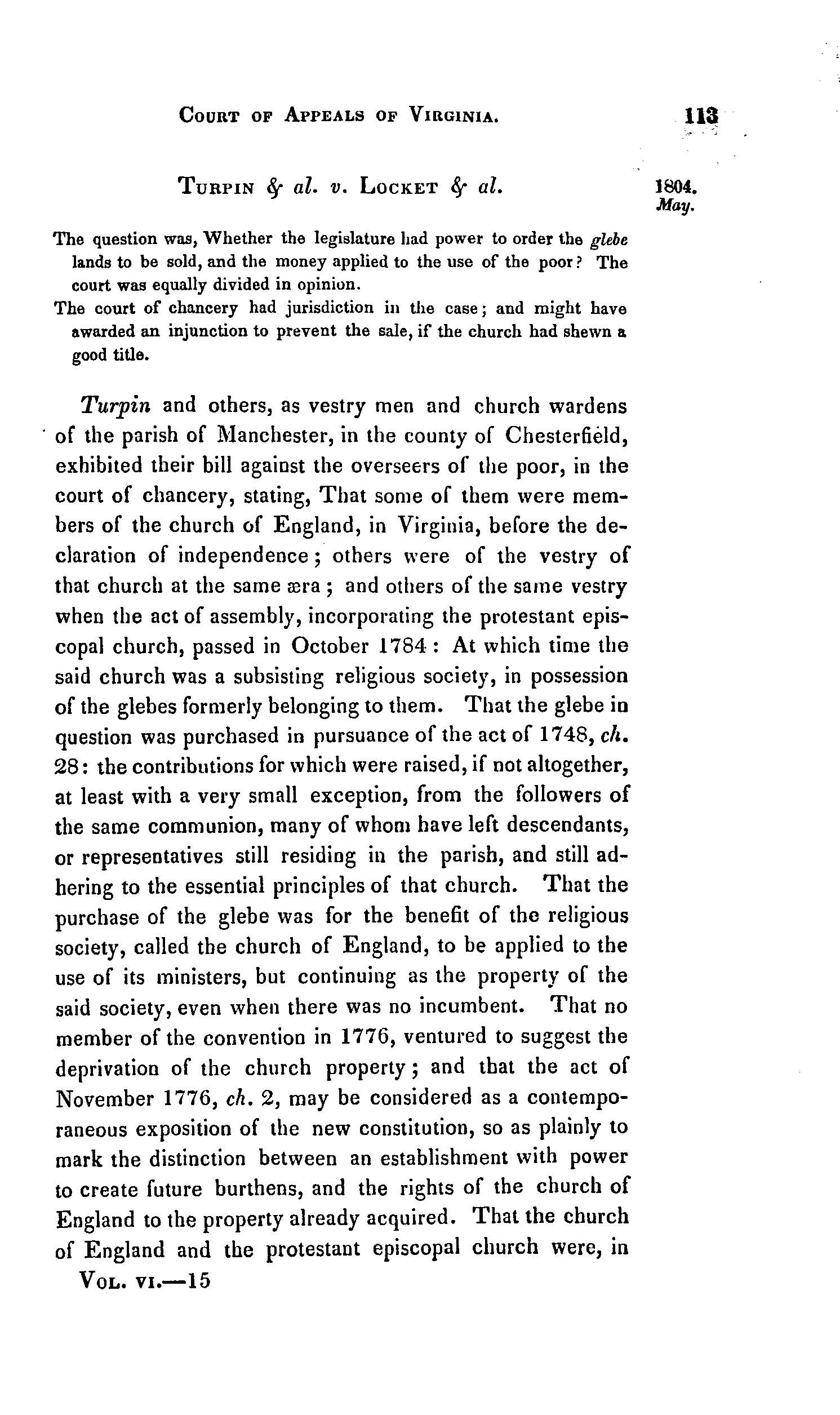Turpin v. Locket
From Wythepedia: The George Wythe Encyclopedia

First page of the opinion Turpin v. Locket, in Reports of Cases Argued and Decided in the Court of Appeals of Virginia, by Daniel Call. Richmond: R. I. Smith, 1833.
In Turpin v. Locket, 10 Va. (6 Call) 113 (1804),[1] the Court addresses whether the legislature had the power to sell the glebe lands[2] and give the money to the poor.
The Court's Decision
Chancellor Wythe dismissed the case and Turpin appealed to the Court of Appeals. After a division on the issue in the Court of Appeals, Chancellor Wythe’s ruling was affirmed.
References
- ↑ Daniel Call, Reports of Cases Argued and Decided in the Court of Appeals of Virginia (Richmond: R. I. Smith, 1833), 6:113.
- ↑ "The term is derived from a Latin word meaning "clod" or "soil." Glebes were farm lands set aside for the support of the clergy in American colonies where the Church of England was established. These glebes sometimes included homes, barns, and slaves. Glebes were usually two hundred or more acres. It could be farmed to supplement the rector's salary, or it could be leased to others. After the American Revolution, most of the glebes were transferred to the newly organized Protestant Episcopal Church. The Baptists led an effort in Virginia to seize the glebe lands. In Jan. 1802 the Virginia Assembly passed the Act Concerning the Glebe Lands and Churches within this Commonwealth. It provided that each county would have a group called the Overseers of the Poor, which would seize the glebes purchased prior to 1777 upon the death or resignation of the parish's present rector. This Act contributed to the decline of the Episcopal Church in Virginia after the Revolution. and give the money to the poor." The website for the Episcopal Church; the "A to Z Glossary"; the "Glebe" page, accessed April 4, 2019.